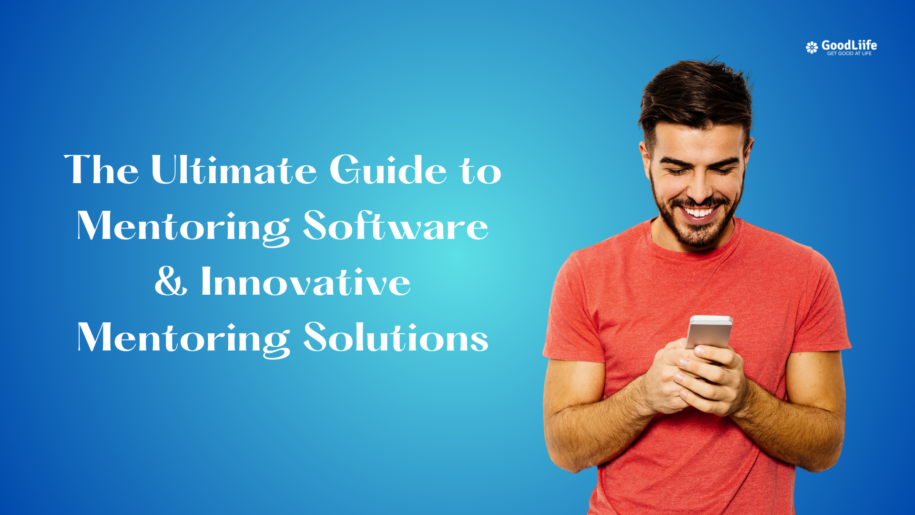Introduction
Mentorship plays a critical role in career growth, leadership development, and business success. With the advent of technology, mentoring software has revolutionized the way mentorship programs are structured, making them more accessible, efficient, and impactful. This guide will explore the concept of mentoring software, its benefits, innovative solutions, and best practices for creating a successful mentoring program.
Definition of Mentoring Software
Importance of Mentoring in Career Growth & Leadership Development
Mentorship fosters personal and professional growth by providing guidance, knowledge transfer, and support. Organizations and individuals alike benefit from structured mentorship programs, leading to increased leadership potential, career advancements, and higher employee engagement.
What is Mentoring Software?
Overview of Mentoring Platforms
Mentoring software is a digital platform that facilitates mentorship relationships through automated matching, communication tools, progress tracking, and reporting analytics. It helps streamline mentoring programs in corporate, educational, and professional settings.
Benefits for Organizations, Coaches, and Mentees
- For Organizations: Increases employee engagement, leadership development, and knowledge retention.
- For Coaches & Mentors: Provides a structured framework to manage and guide mentees effectively.
- For Mentees: Enhances career development, learning opportunities, and professional networking.
Innovative Mentoring Software: The Future of Mentorship
Cutting-Edge Features Like AI-Driven Matching and Analytics
Modern mentoring software leverages AI to match mentors and mentees based on skills, goals, and compatibility. It also provides analytics to measure program effectiveness.
How Technology is Reshaping Mentorship
- Virtual Mentorship: Remote-friendly platforms facilitate mentorship regardless of geographical barriers.
- Gamification & Engagement Tools: Encourages participation and goal tracking.
- Data-Driven Insights: Helps organizations refine their mentorship programs.
How to Create a Successful Mentoring Program
Step-by-Step Guide Using a Mentoring Program Template
- Define clear objectives and success metrics.
- Choose the right mentoring software.
- Recruit and match mentors and mentees effectively.
- Provide structured resources and guidelines.
- Monitor progress and gather feedback for continuous improvement.
Common Mistakes to Avoid
- Poor mentor-mentee matching
- Lack of clear goals and expectations
- Failure to track progress and gather insights
Career Growth with Mentoring
The Impact of Structured Mentorship on Career Development
Studies show that mentored employees experience faster career advancement, higher job satisfaction, and increased skill development.
Corporate and Individual Success Stories
- Example: A Fortune 500 company saw a 30% increase in leadership promotions after implementing a mentoring program.
Coaching vs. Mentoring: Which One Do You Need?
Differences in Approach, Goals, and Effectiveness
- Coaching: Short-term, goal-oriented, focused on skill development.
- Mentoring: Long-term, relationship-based, focused on holistic growth.
Best Scenarios for Each
- Coaching for immediate performance improvement
- Mentoring for career progression and leadership development

What’s the Difference Between Coaching and Mentoring?
More Detailed Comparison of Skills, Strategies, and Applications
- Coaching: Directive guidance, structured sessions, skill-building focus.
- Mentoring: Relationship-based, experience-sharing, career-oriented advice.
Entrepreneurship Mentoring: How Mentors Fuel Business Success
The Role of Mentors in Guiding Entrepreneurs
Entrepreneurs benefit from mentorship in business strategy, networking, and overcoming challenges.
Case Studies of Successful Entrepreneur-Mentor Relationships
- Example: A startup founder doubled revenue within a year through strategic mentorship.
Business Coaching & Mentoring: Building Leadership & Strategy
How Business Coaching and Mentoring Work Together
Both coaching and mentoring contribute to leadership development, decision-making, and organizational growth.
Best Practices for Implementing Both
- Incorporating mentorship into leadership training
- Using coaching for skill refinement and mentorship for long-term career growth
Corporate Mentoring Programs: Driving Employee Success
How Companies Use Mentoring Software to Develop Leadership
Organizations implement mentoring programs to retain talent, develop future leaders, and foster a knowledge-sharing culture.
Employee Engagement and Retention Benefits
Mentorship leads to increased job satisfaction, reduced turnover rates, and a stronger company culture.
The Role of Mentoring Software in Leadership Development
Choosing the Right Mentoring Software
When selecting a mentoring platform, consider features like AI-driven matching, communication tools, and analytics to measure success.
The Future of Mentoring Programs
As technology advances, mentoring programs will become more personalized, scalable, and data-driven. Organizations and individuals should embrace digital mentoring solutions to stay ahead in career and leadership development.

Leave a Reply